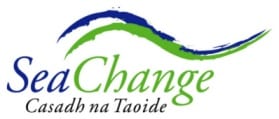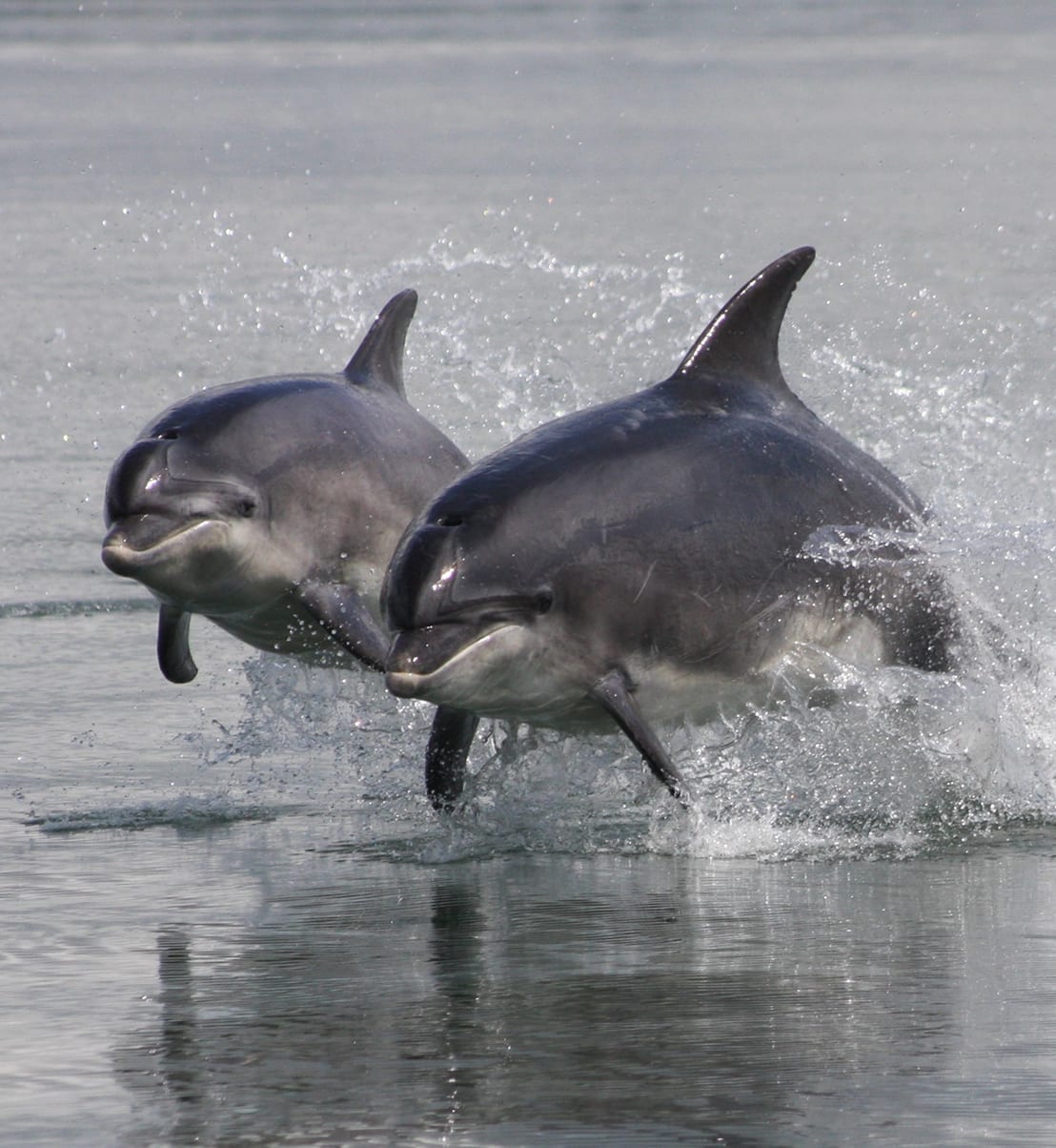Collaboration is essential for successful research and understanding of long-lived, wide ranging marine mammals
![]()
![]()
Irish Cetacean Necropsy Scheme
Since June 2017 IWDG have been working with the Regional Veterinary Laboratories of the Department of Agriculture and GMIT to carry out a cetacean post-mortem scheme on behalf of the Marine Institute and the National Parks and Wildlife Service with support from the European Maritime and Fisheries Fund.
Using IWDG’s well-established strandings scheme, freshly stranded common and striped dolphins and harbour porpoise are collected and brought to the Regional Vet Lab in Cork City for examination by a veterinarians to investigate the cause of death. Case history reports are then generated to document significant findings, and samples are stored to facilitate future investigations of marine mammal ecology.
The UK’s Cetacean Strandings Investigation Programme has provided the team with expert training and technical guidance. This scheme and has the potential to greatly increase our understanding of the cause of strandings, as well as provide samples to explore the health of cetaceans in Ireland.
![]()


ObSERVE Acoustic
This project was designed to provide baseline data on the offshore occurrence and distribution of deep diving whales and dolphins within Irish waters. It was funded by the Department of Communications, Climate Action & Environment.
It was led by the Galway-Mayo Institute of Technology in conjunction with international experts from the IWDG, Marine Institute, SMRU Consulting and JASCO Applied Sciences from May 2015 – November 2016.
http://www.observe-acoustic.ie/


![]()
State-of-the-art static acoustic monitoring equipment was deployed at depths up to 2km for 1,657 days which recorded nearly 375,000 whistles and 3.8 million echolocation clicks.Visual surveys with a towed hydrophone were also carried out where >7,000km of offshore surveying took place where 1,322 whale and dolphin sightings were made!13 species were detected acoustically including elusive beaked whales and blue whales who were estimated to be detected between 115 – 200 km away!
The project will greatly help conserve offshore species into the future. To date more than 1,000 such effort watches have taken place from key sites, by a small but dedicated team of recorders. They have identified important habitats and seasonal trends for a variety of species ranging from harbour porpoises to fin whales. This form of non-invasive monitoring does not disturb animals, is an extremely efficient and a cost effective way of gathering data on the whales and dolphins that occur in our inshore waters.
PReCAST
The Policy and Recommendations from Cetacean Acoustics, Surveying and Tracking (PReCAST) project took place between 2008-2011 in partnership between the IWDG and the Galway-Mayo Institute of Technology (GMIT) with funding from the Marine Institute under the National Development Plan (2007-2013) Sea Change initiative and the National Parks and Wildlife Service.
It set out to support conservation policy and guide state agencies while implementing national and international obligations while building a national capacity for automated assessments and monitoring wildlife populations.
The project achieved its goals across six work packages such as developing acoustic monitoring techniques, evaluating habitat use, reviewing the potential for telemetry tracking and assessing fisheries interactions in the Celtic Sea.
![]()
![]()


